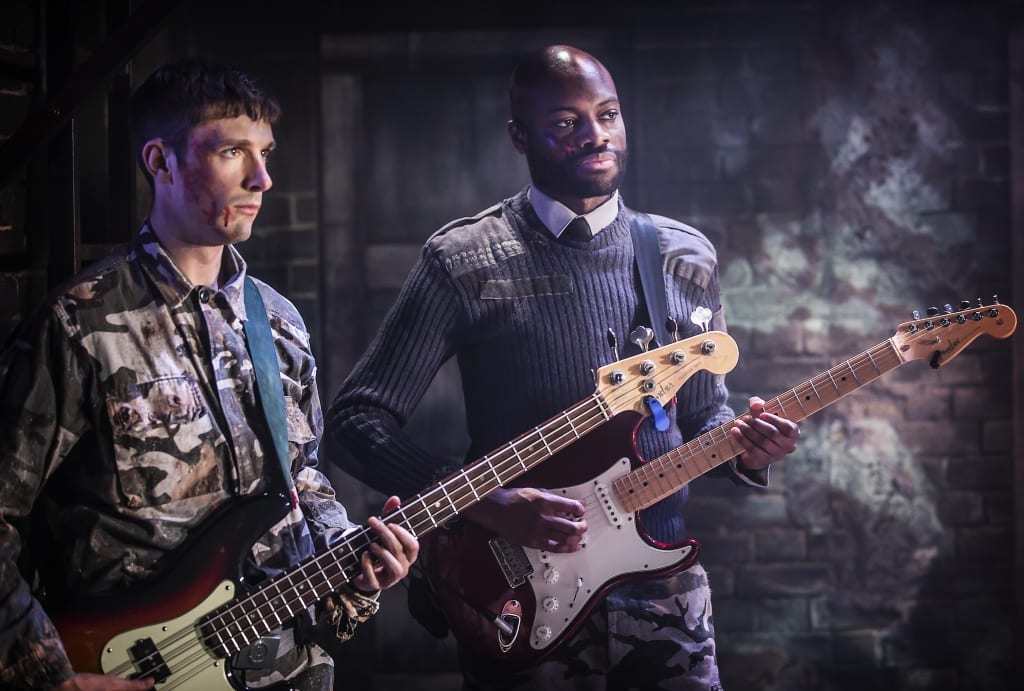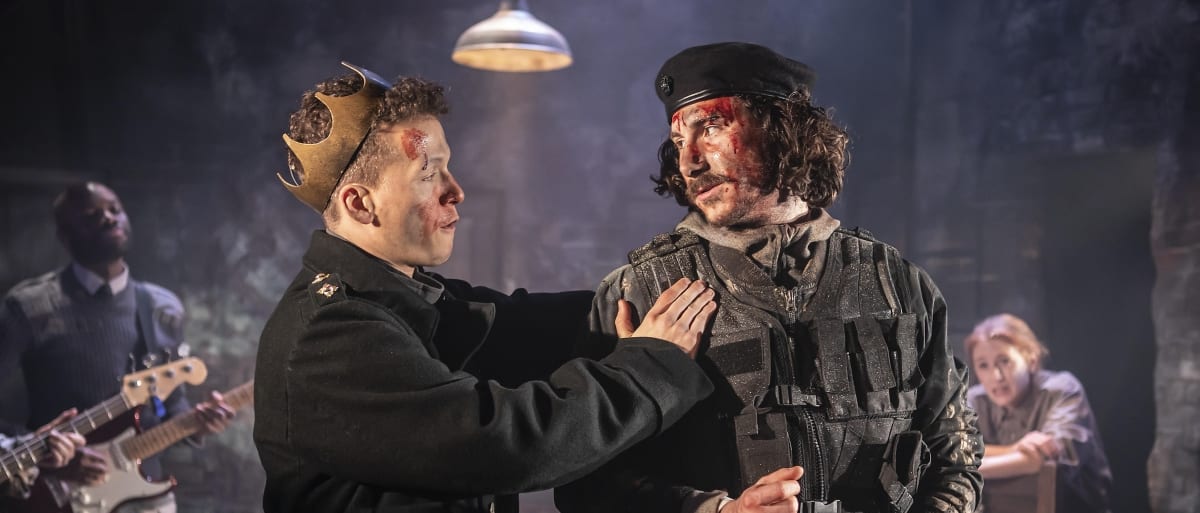I am a fan of Paul Hart’s work as a director and have previously enjoyed very much his approach to Shakespeare plays as well as his innovative musicals at the Watermill Theatre. I also am especially interested in the way he works with a regular, small ensemble of actor-musicians. He has a distinctive style that employs a well-chosen group who act all the roles with no regard to gender or race and who also manage to be excellent on-stage musicians so that music is always integrally incorporated into the interpretation in ways that comment on the action, update the feel of the play, etc. He uses a similar approach for this production of Macbeth. I was not as happy with his Macbeth, now touring, as I was with his earlier efforts or with the splendid Sweet Charity and Kiss Me, Kate of recent Watermill fame.
I cannot fault the approach per se. I liked the scruffy hotel or bordello into which he has put the action, a splendid, functional and evocative set by Katie Lias, with whom he usually works on Shakespeare. I thought that the performers did a fine job both in terms of acting and musicianship. Billy Postlethwaite is a strong Macbeth, visually slightly sinister, striking and memorable; definitely growing more frightening and deranged as the play progresses. His Lady Macbeth, Emma McDonald, especially in her red dress during the banquet scene, is a suitable consort for this ambitious and self-deluded soldier who becomes a bloody tyrant. I didn’t find casting Robyn Sinclair as Banquo particularly helpful, nor did I find it distracting, and it certainly makes sense that men and women fight together in this update. I enjoyed a lot of the music. I could understand the reason for the ambience of the hotel/bordello, with its drugs, the involvement of the chorus, and the excellent Molly Chesworth as a bellhop who was the Porter (and also Fleance).

But for some reason, this production didn’t gel for me. I felt there were too many changes to the text. Perhaps it was also because it was opening night for a touring production that was still finding its feet in an unfamiliar venue? Not having three witches but substituting a kind of chorus for the witchcraft and even the hallucinations about the knife that Macbeth sees before him just as he is about to murder Duncan, should not have bothered me, but it seemed to me to take away attention from what was going on rather than enhancing it. Yet, Verdi successfully turns the three witches into three choruses of witches in his operatic interpretation of the play. For once I found myself more distracted by the stagecraft and Paul Hart’s approach than enticed into the story.
I felt with some of Hart’s earlier work with Shakespeare texts that he somehow made them fresher and more relevant than is often the case. For me, in my opinion, even Paul Hart’s approach to Macbeth simply didn’t work for the play, though I did think it was interesting and at times even compelling theatre. And maybe I was just not being responsive enough. You might want to go and decide for yourself.

